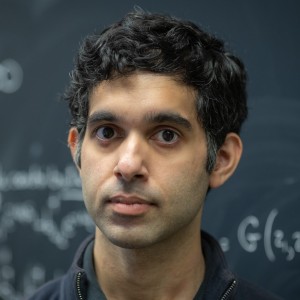
Max Planck Institute of Quantum Optics
Hans-Kopfermann-Straße 1,
85748 Garching bei München
rahul.trivedi[at]mpq.mpg.de
Research websiteDescription
Research Focus: Many-body Open Systems, Quantum Algorithms for Many-Body Physics, Many-body Quantum Optics
Rahul Trivedi’s current research focusses on the theoretical quantum information and quantum science, with an emphasis on the role of decoherence in many-body quantum systems. There are three main directions that he pursues.
Theory of Open Quantum Systems: The main focus here is to build a theory of open systems, especially in the many-body regime, and rigorously understand both their physical properties as well as technological applications. Specific topics here include studying the quasi-locality properties open systems, their mixing time and stability, their classical and quantum circuit complexity. Furthermore, there is also a focus to investigate if open systems can be used for dissipative state preparation and computation. Here, Trivedi’s research develops and utilizes tools combining quantum information, Tensor networks and quantum complexity theory.
Noisy and unencoded quantum computations: As quantum computers scale up, they can possibly be used to simulate complex many-body systems. However, they still are expected to operate either without any error correction or with only modest error correction. Here, the main thrust of Trivedi’s research is to understand if any physically relevant problems can be solved robustly in the presence of noise, and if they are hard to solve on classical computers.
Many-Body Quantum Optics: Systems of quantum emitters interacting with an underlying quantum field are a specific and experimentally relevant class of open quantum systems that display rich collective phenomena and these systems can be harnessed both for quantum simulation and non-classical light generation. Here, in collaboration with experimental groups, Trivedi develops tools to analyze and design many-body quantum optical systems for quantum information applications such as quantum simulation and quantum enhanced interferometry.
Further Reading
- News: Rahul Trivedi awarded ERC Starting Grant
- Research website at the Max Planck Institute of Quantum Optics